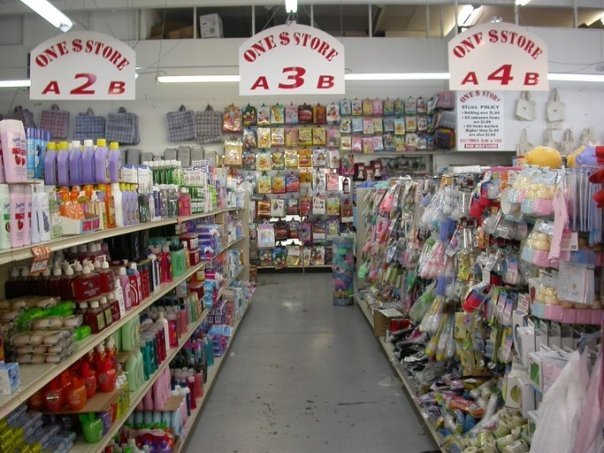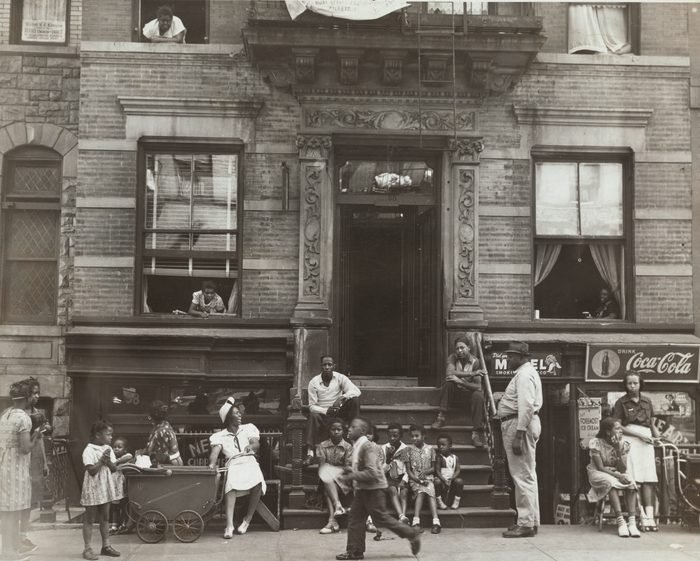
Are dollar stores magnets for violent crime?
In recent years, the United States has experienced a significant rise in economic inequality, a trend that has coincided with the rapid expansion of dollar stores, especially in the aftermath of the Great Recession. These establishments are often lauded as beacons of affordability, providing essential goods to financially disadvantaged communities. However, recent media reports and community demonstrations have cast a shadow on their presence. They highlight several concerning aspects, one of which is an alleged escalation in violent crimes in their vicinity.

Urban Affairs Review appoints Book Review Editor
Urban Affairs Review recently appointed Dr. Jill Simone Gross as Book Review Editor. The journal is eager to relaunch its book review program as a regular section of the journal. Please share new and upcoming titles with us at our dedicated email address, urbanaffairsbookreviews@gmail.com.

Consumption and Economic Security
This study reveals a built-in contradiction of capitalist housing markets by conceptualizing homeownership as a special commodity, the consumption of which involves two separate stages of conflicting purposes: limited financial resources are fought over in the consumption of mortgage products (to obtain homeownership) and the enhancement of household economic security (to sustain homeownership). It is the latter stage that determines the long-term prospect of sustainable homeownership.

Creating Local “Citizen’s Governance Spaces” in Austerity Contexts
In many cities, and particularly in a context of neoliberal austerity and governmental withdrawal from public action, citizens act upon their urban environment. If these initiatives could be presented as spaces of resistance to neoliberalism, or as political acts of reclaiming the city, these emergent practices are neither a manifestation of state retrenchment nor its outright rejection. Individuals and loosely organized collectives involved in such initiatives develop and are embedded in complex and multidimensional relationships with local institutions and third sector organizations. Montreal is a particularly interesting case to observe these practices. Bringing citizens’ initiatives and so-called social innovations to the core of public action have been among the neoliberal policy orientations pursued by some of Montreal’s boroughs and third sector organizations, increasingly relying on volunteers and private citizens to intervene in the public sphere, especially in the areas of urban gardening and food recuperation.

Explaining Value Capture Implementation in New York, London, and Copenhagen
Value capture (VC) is widely cited as a method for local authorities to continue to provide urban public goods, such as public transport or measures to make neighborhoods more climate-resilient, in the face of fiscal stress. It is based on the idea that public investments create financial value in their surroundings that accrues to various beneficiaries. In theory, this value can be captured to fund those investments. However, the application of novel value capture strategies in practice remains limited. In this article, we aim to provide a better explanation of the implementation process of value capture as a strategy for funding public transportation infrastructure.



How Migration Makes a City
In this four-part miniseries, we spoke with six scholars whose research addresses different aspects, geographies, and approaches to analyzing and understanding the relationship between migration and urban politics and culture. In this episode, we’ll hear from collaborators Deirdre Conlon and Nancy Hiemstra about their decade-long project on detention economies; Leslie Gross-Wrytzen on how migration has shaped Moroccan cities; David Kaufmann on the important but fraught role of NGOs; and Andrew Baldwin raises some important and understudied questions on the relationship between urban climate migration and property.

The Politics and Experience of Sanctuary Cities
In this four-part miniseries, we spoke with six scholars whose research addresses different aspects, geographies, and approaches to analyzing and understanding the relationship between migration and urban politics and culture. In this episode, we take a multidisciplinary look at the sanctuary city with political scientist David Kaufmann and historian Domenic Vitiello, and examine the fraught concept of climate migration with Andrew Baldwin.

Toward a state-led, market-enabled commons
What is community energy? What does green energy have anything to do with local places, democracy and common goods? How do lay people contribute to the production and the distribution of solar energy? These may be some usual questions coming to people’s minds whenever group solar or collective power campaigns pop up on the press or in the forums. Community energy is a type of community-owned, -financed, and -operated renewable energy supply in the form of a project or program initiated by a group of people united by a place, a neighborhood, and/or a set of common interests.

Intimate entanglements
In this four-part miniseries, we spoke with six scholars whose research addresses different aspects, geographies, and approaches to analyzing and understanding the relationship between migration and urban politics and culture. This episode delves into recent debates in critical geography that explore the relationships between racism, migration, borders, and labor.

Experiences of policing in gentrifying neighborhoods
Cities in the United States are well known for their segregation and sharply different experiences of policing across neighborhood boundaries. Extensive social science research has shown that “race-class subjugated neighborhoods” with concentrated populations of low-income Black and Latino residents experience harsh and punitive policing, whereas high-income and mostly-white neighborhoods experience limited police contact. In the former neighborhoods, residents also express frustration that policing does not address concerns about crime or violence, leading to these neighborhoods being simultaneously “over-policed and under-protected.”

Community Benefits Through an Anchor
This project explores how anchor developers are contested throughout their planning and what the outcomes of these contestations teach us about accountability in urban governance. I look at this phenomenon through the case of the planning of the Obama Presidential Center (OPC), an anchor institution built by the Obama Foundation that features a museum of President Barack Obama’s presidency and a campus for Foundation programs. The Obama Foundation partnered with another nearby anchor, the University of Chicago, to plan the future OPC, which will be constructed in Chicago’s Woodlawn neighborhood. The University has a fraught relationship with Woodlawn residents due to its racist treatment towards Black residents spanning back through the 20th century.

“The councilors are the ones to blame”
When we engage with others, it is not on neutral ground. Instead, we interact on territories marked by power and social distinctions. Take neighborhoods, for example — these areas have social rules and purposes. Some of these rules may dictate that we are not allowed to step on the grass, that we should avoid going there at night, or that they are reserved for those who live there. As this illustrates, territories are not neutral; they shape who we are, how we should behave, for what purpose, and who has a say and ownership over space. Who determines the power dynamics within territories? Literature shows that territories are simultaneously created from above, where the state plays a determinant role and from below by those who inhabit them. However, some questions remain unanswered, particularly the state's role in creating territories vis-á-vis citizens' initiatives.

Mobile Borders and Urban Landscapes
In this four-part miniseries, we spoke with six scholars whose research addresses different aspects, geographies, and approaches to analyzing and understanding the relationship between migration and urban politics and culture. After introducing our guests for the series, this episode works through the concept of the border as a mobile entity that carries very real and concrete implications.

What Court Mergers Teach Us About Cutting Government Costs
Across the world, consolidation is a common way of reforming local government. Advocates argue that combining two or more local governments enables the new, larger government to reduce spending by providing services more efficiently. One way that mergers achieve this is by spreading large capital costs over a larger population: instead of two small towns operating their own trash removal service or two small school districts running two administrative systems, the larger local government can operate one. It is also argued that mergers can reduce spending through the elimination of redundant departments, services, and staff.

Resettled Refugees and African Americans in the Same Neighborhoods
Our study delves into the relationship between resettled refugees and native Black Americans who share neighborhoods but may experience distinct realities. We aim to understand if refugees and native Blacks perceive their surroundings similarly; if they interact; and whether they view each other as strangers, threats, or potential allies for collective problem-solving. Our investigation focuses on intergroup dynamics and local power relations between "old locals" (incumbent residents) and "new locals" (resettled refugees) to assess opportunities for community building between these historically minoritized multiethnic groups.

Analog alternatives to the urban platform
In our final installment of this four-part cities on cities and technology, we wrap up our conversations on smart cities, urban platforms, knowledge production, and civic intelligence by exploring alternative approaches to urban transformation – analog and digital. Tune in to learn more about the Anti-Eviction Mapping Project, the changing geography of carbon economies, and what post offices and hardware stores can teach us about community.

With a little help from my friends?
Cities around the world face declining revenues and increasing demands for public services by residents and commuters. Large metropolises have been navigating times of deficit for a long time. The pandemic only intensified these dynamics, particularly in big cities. Cross-boundary dynamics, such as contracting out or joint production of services, are well-known practices intended to (a) lower the costs of services, (b) increase service quality, and/or (c) enable access to certain services.

Urban Platforms: Uploading the City
Part three of our four-part series on cities and technology attempts to grapple with the urban platform, platform urbanism, and the messy consequences of implementing these approaches in cities. Is a city like a platform, or is it a platform? What kinds of data do urban platforms need to operate, and what kinds of subjects do those data make? This episode features excerpts from all six scholars in the series who untangle these threads and challenge the assumptions of tech-driven policies.